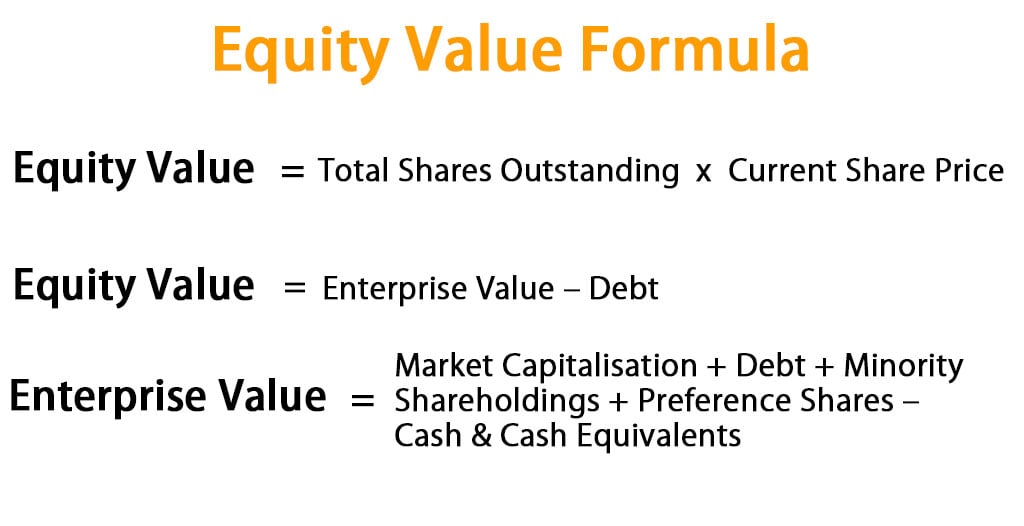Table Of Content
- How can I increase the equity I have in my home?
- UPDATE 26 August 2021 – Zoopla notes ‘acute shortage’
- UPDATE 27 July 2021 – Savills predicts 9% price growth
- April: Market Evolving From ‘Frenzied Mindset’ – Rightmove
- June: Halifax Sees UK Home Affordability Slump To Record Low
- How to Borrow Against Home Equity
Most other areas recorded below-average increases in demand, typically rising in line with last year or only ahead by single digits. This bounce is likely due to pent-up demand among potential buyers, combined with falling mortgage rates since the end of last year, which have improved affordability. “Despite the market feeling more buoyant with an increase in stock and enquiries, affordability concerns remain an issue following consecutive rate rises last year and the continued high cost of living. Halifax, the UK’s biggest mortgage lender, saw a 1.3% month-on-month increase in average property in January, the fourth consecutive rise. While average prices have dropped, Zoopla says this is not the picture across the country. It describes what has emerged as a ‘three-speed’ housing market, split between southern England, London and the rest of the UK.
How can I increase the equity I have in my home?
Zoopla reports that sellers are adjusting their prices, with 40% of homes listed on its site having reduced their original asking price. Government monthly property transaction data shows UK home sales in January 2023 stood at 96,650, down by 2.6% from December’s figure of 99,260. Zoopla reports that a typical estate agent had 25 properties for sale in March compared to a low of 14 at the same time last year. Yet despite the slowdown, market conditions are better than expected, according to the online portal. New ‘sales agreed’ data for the past nine months indicates that 500,000 sale completions are expected to go through in the first six months of 2023.
UPDATE 26 August 2021 – Zoopla notes ‘acute shortage’
“Prices are falling more in southern England where higher mortgage rates have priced more people out of the housing market, weakening demand. While UK house prices are 0.1% higher over the year, it is the number of sales that have been hit hardest by higher borrowing costs, especially amongst mortgage reliant buyers. Higher mortgage rates and the rising cost of living have put a dampener on house price inflation over the past 12 months. Data from the property portal showed that average house prices in April hit £250,200, marking an annual inflation rate of 8.4% compared to 9% in March.
UPDATE 27 July 2021 – Savills predicts 9% price growth

It expects to see quarterly price falls in the first half of 2023, which will result in the annual growth rate turning negative by the middle of the year. House prices have grown by 974% in the 40 years since Halifax’s House Price Index was established. In January 1983 an average UK home cost £26,188, and interest rates were 11% compared to 3.5% today. Average long-term homeowners in England and Wales made a record profit of more than £100,000 when they sold their properties last year, according to estate agents Hamptons, Andrew Michael writes. ONS data also shows that the average UK house price was £295,000 in November 2022 – £28,000 higher than in the same month in 2021 – but this was a slight decrease on the previous month’s £296,000. That said, the number of properties to rent nationally is still down by 38% compared with pre-pandemic levels in 2019, while the number of people enquiring about a property to rent is 53% higher than three years ago.
Higher mortgage repayments are likely to act as a brake on house price growth, especially given the increased pressure on household budgets because of rising energy costs and inflation across all areas of spending. The figures show that the market remains ‘surprisingly resilient’ despite growing economic pressures, said Rightmove – with buyer demand up 20% on the pre-Covid five-year average. The number of homes coming to the market rose by 16% in September compared to this time last year marking a return to 2019 levels. Annual house price growth fell in September for the third month in succession, tumbling to 9.9% from 11.4% recorded in August, according to Halifax, the UK’s biggest mortgage lender, writes Kevin Pratt. “The pace of annual growth at 1.9% is the lowest level recorded over the last three years.
June: Halifax Sees UK Home Affordability Slump To Record Low
The number of available rental properties has fallen by 26% year-on-year, while demand is up 6%. Annual rental growth in the capital, at 15.8%, was the highest ever annual rise of any region. Annually, the cost of rent was 11.8% higher in June 2022 than 12 months ago, according to data from Rightmove, which analysed 332,460 rent charges. The average cost of renting a home in the UK (outside London) increased by 3.5% in the second quarter of the year compared to the first quarter, writes Bethany Garner. For this reason, Rightmove’s annual growth forecast at 7%, is lower than 9.3% it’s currently running at.
What are the costs of a home equity loan?
He added that measures of consumer confidence have already fallen towards ‘record lows’, while interest rates are widely expected to rise further, feeding through to the cost of mortgages. Bank rate is currently at 1%, having risen from 0.1% since the end of last year, with the next decision scheduled for 16 June. On a monthly basis however, seasonally-adjusted prices were 0.9% higher in May than April – a bigger rise than the 0.4% recorded between April and March, said the UK’s largest building society. Despite mounting cost of living pressures, the imbalance between supply and demand for homes is the main driver behind the continued climb in property prices.
Home Equity Access Scheme (HEAS) - National Seniors
Home Equity Access Scheme (HEAS).
Posted: Thu, 05 Oct 2023 09:20:21 GMT [source]
July: Zoopla Sees Lowest Monthly Price Growth Since 2019
The North East saw the highest annual house price inflation, with average prices increasing by 4.7% in the 12 months to June 2023, up from an annual percentage change of 3.6% in May 2023. But it has the lowest average house price of all English regions, at £161,000. The weakening housing market is a sign of its continuing adjustment to higher mortgage rates and cost-of-living pressures with less buyer demand, fewer sales and stagnating house price growth.
“A rise in inflation is on the cards and any increase will almost certainly trigger a corresponding spike in interest rates. As such, in contrast to previous months, buyers will likely begin to take a more cautious view of the market until they have more clarity on any potential rate rises. While the Bank of England opted to keep interest rates on hold yesterday, it’s still expected to increase base rate by the end of this year to tame risks of rising inflation, while further hikes are likely in 2022. As a result, Halifax expects house buying demand to cool in the months ahead as the cost of mortgages increases. Last month also saw a ‘full house’ for first time since March 2007, according to Rightmove’s latest house price index.
It also brings the average asking price of a UK property to a staggering £348,804. Rightmove’s house price index shows average asking prices grew by 1.7% month-on-month, or £5,760, to stand at £354,564 in March 2022. In terms of UK regional performance, the South West and East of England each recorded the strongest annual growth with prices rising by 12.5% in the year to February 2022. Halifax adds that average property prices have risen in value by £47, 568 over the past two years. Amanda Aumonier, head of mortgage operations at online mortgage broker Trussle, said that we are beginning to see “key indicators that a shrink in house prices is on the horizon”. Average house prices in the UK increased by 9.8% over the year to March 2022, compared to 11.3% in the year to February.
The knock-on effect saw lenders increase mortgage rates and withdraw thousands of products, leaving many buyers and remortgaging owners in difficulty. This is the first such fall since July last year, and the sharpest decline since June 2020. Nationwide says the average price of a property now stands at £268,282, down from £272,259.
The North East region and London have led the rebound in sales, with numbers up 17% and 16% respectively. Buyer demand is a measure of arranged viewings for specific properties listed on Zoopla’s site. “Mortgage rates are more attractively-priced than they were several months ago, even if the ‘best buy’ deals have been pulled recently. The Association is calling on the government to make home ownership more accessible and affordable, through greater supply of property and reform of affordability models. Its research shows the number of owner-occupier mortgages has fallen by more than two million since its peak in 2002.
A home equity loan is best used for a repair, renovation or project that will add to the value of the home. Census Bureau’s 2021 American Housing Survey report shows that the average project (or series of projects) financed by a home equity loan cost $11,240. The report also shows that the kitchen tends to be the most expensive room to renovate, with homeowners spending a median amount of $35,000. That is especially true if you are looking to refinance a mortgage or borrow money against your residence. How much money you qualify for varies, depending on your home’s value, outstanding mortgage balance and credit score. You’ll likely need to improve your credit score before you can tap into your home equity.
London, which has been lagging behind the rest of the UK in terms of price rises, recorded the biggest jump in buyer enquiries at 24% higher than last February. The building society said the price of a typical British home surged by 12.6%, a rise in cash terms of £29,162, in the 12 months to February 2022. The average UK house price climbed by 10.8% in the year to February 2022, taking it to a record high of £278,123, according to the latest house price index from Halifax. “It is difficult to see how inflation will not start to impact the house buying pipeline, as buyers are forced to clamp down on their expenditure. The average UK house price climbed by 11% in the year to March 2022, taking it to a record high of £282,753, according to the latest house price index from Halifax.
Almost two-thirds of first-time buyers buy jointly, with 63% of such mortgage completions now in joint names (two or more people). House prices rose 0.7% month on month in January, according to the latest Nationwide house price index, writes Jo Thornhill. Asking prices for homes coming to market in February are 0.9% (or £3,091) higher than in January, according to property portal Rightmove, taking the average to £362,839. Regionally Northern Ireland is the strongest performing part of the UK, with house prices increasing by 5% on an annual basis. Properties here now cost an average £195,956, £9,359 more than in February 2023.

No comments:
Post a Comment